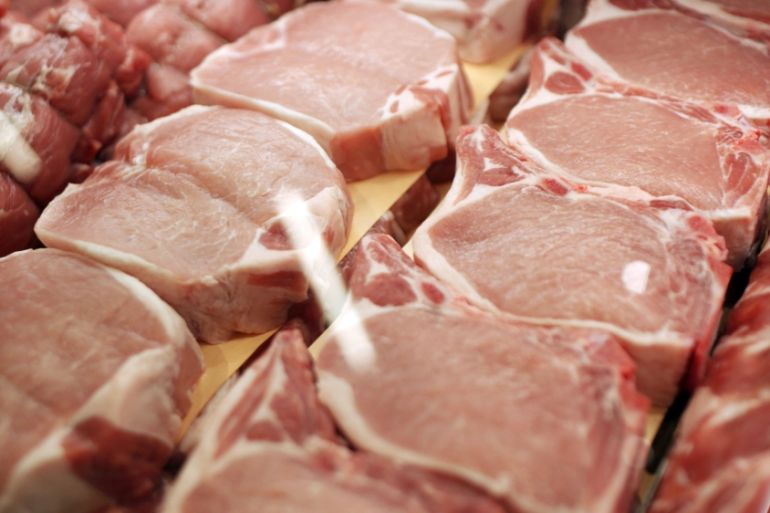United States pork prices rise as fatal pig disease hits Asia
This is likely the first time African swine fever has significantly affected the US, says Tyson Foods CEO Noel White.

United States pork prices have increased in recent weeks as a deadly pig disease in Asia is reducing global meat supplies, the chief executive of Tyson Foods Inc said on Tuesday after the company posted lower-than-expected quarterly earnings.
The price increase is probably the first time the US has been significantly affected by African swine fever (ASF), CEO Noel White said.
Keep reading
list of 3 itemsIs swine fever creating a market for Colombian meat in China?
Pig deaths on Chinese/Russia border: African swine fever spreads?
The higher pork prices could benefit meatpackers like Tyson, though they were overshadowed in the company’s latest earnings by an August fire at one of its US beef plants. More international demand for pork is also expected to help Tyson rivals such as Seaboard Corp, JBS USA and WH Group’s Smithfield Foods.
“We’ve started seeing the improved pricing because of supply shortages in China and other Asian countries affected by ASF,” White told analysts on a conference call.
The increase in prices is “extremely unusual”, White said, because it comes as US meat processors are slaughtering about 2.7 million hogs per week. That is up from about 2.6 million a year ago.
Tyson shares climbed nearly seven percent after White’s comments.
“We urge investors to buy here before the impact of ASF is felt,” Bernstein analysts said in a note.
African swine fever has killed up to half of China’s hogs since August 2018, and this has lifted Chinese pork prices to record highs. Vietnam, the Philippines and other nations are also struggling to contain outbreaks of the virus, which is deadly to pigs, although not harmful to humans.
US-based processors face a disadvantage for sales to China, compared with other suppliers, because Beijing imposed steep tariffs on US pork as part of the two countries’ trade war. Still, prices are now so high in China that importers are willing to pay the tariff, affecting the US market.
“Since the product is being produced for export today, we are seeing product prices move higher,” White said on the call. “We are seeing the impact, particularly over the course of the last several weeks.”
Tyson fell short of Wall Street estimates for quarterly revenue and profit after the fire at a Kansas slaughterhouse hurt sales volumes in its beef business, the company’s biggest segment.
Excluding items, the company earned $1.21 per share, compared with the average analyst estimate of $1.29, according to International Brokers Estimate System data from Refinitiv. Total sales rose nearly nine percent to $10.88bn on the strength of Tyson’s pork and chicken segments, but missed the average estimate of $11bn.